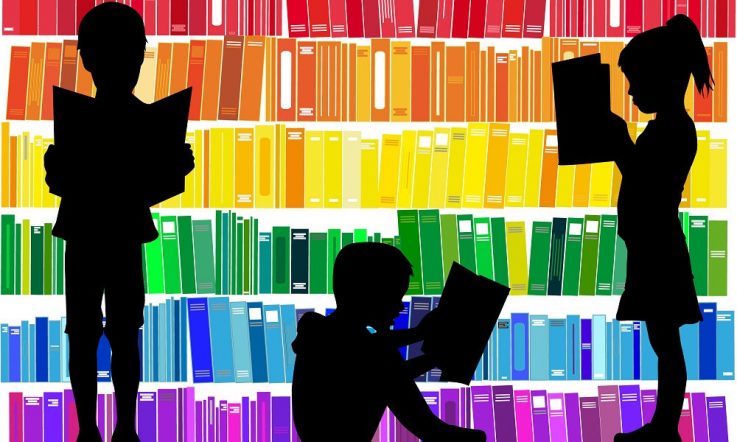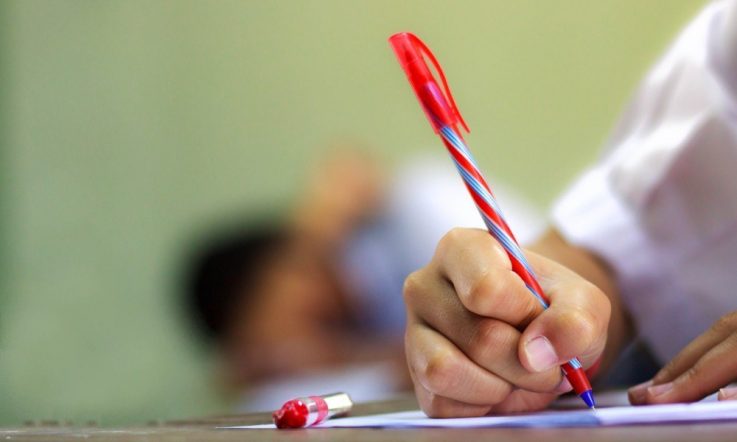Research from the National Literacy Trust has shown that students who enjoy writing are seven times more likely to be writing above the expected level for their age, compared to those who don't enjoy writing at all. In the same UK study, 45 per cent of eight to 18-year-olds said they enjoyed writing and 55 per cent enjoyed reading.
In an effort to better reach students who aren't engaged in reading, writing and storytelling, staff at Cherrybrook Technology High School in New South Wales decided to run a literary festival for Year 7 students.
Held in Term 4 last year, the youngsters were treated to a host of visitors including authors, cartoonists, illustrators and performers, who all ran workshops on the day.
‘Oliver Phommavanh entertained everybody with his stories of when we was growing up, how he became a writer and why he was interested in writing. Candy Royalle who is a spoken word artist, a poet, did a poetry slam performance in the hall for the whole year group. And then last year we also had a storyteller to finish the sessions,' Teacher-Librarian Amber Sorensen shares.
‘Our main goal with the literary festival is to make kids excited about literacy and storytelling so that they will want to read more and engage with literacy in a variety of formats,' she adds.
Both Sorensen and colleague Coni Halder were responsible for coordinating the event at the school last year. On the day, the authors and guest speakers held workshops with small groups of students, showcasing a range of genres and styles. ‘Each workshop ran slightly differently depending on the presenter but in all workshops students did do some sort of piece of writing or illustrating,' Sorensen explains.
‘For example, in the Manga workshop run by Matthew Lin, the students drew manga characters; Candy Royalle's poetry workshop led to students creating pieces of poetry – some of which were later published online; John Larkin and JC Burke worked with students to develop “show don't tell” writing skills whereby they took a word like “walk” and then all the synonyms associated with that word – for example skip, hop, stumble, sprint, shuffle, stride – and learned how each word has a nuanced meaning and how this can change the feel of a text. The students in these workshops wrote a passage where each word was carefully selected to produce a desired effect instead of using adverbs and adjectives.'
Every class was exposed to three different workshops by three different presenters and an effort was made to ensure that each class was exposed to a mix of presenters.
When it came to booking the visitors, the teacher-librarians contacted various booking agents, asked their local libraries for help, and drew upon some relationships with authors who has previously visited the school.
‘We contacted various agencies and asked agencies who would be suitable for a Year 7 audience. We also looked at the authors that are popular in our library and tried to get some of those in,' Sorensen says.
This year's line-up looks to be just as impressive, with manga artist Matthew Lin, novelist Will Kostakis, children's author Tim Harris, writer Ursula Dubosarsky, Indigenous visual poet Kirli Saunders and spoken word artist L-Fresh the Lion all on the bill. Sorensen says it's all about getting a good mix of speakers who tell stories in different ways – from poetry, drawing, illustrating, writing and more.
For those looking to run a literary festival in their own school setting, both Sorensen and Halder have some advice on how to get started. ‘I think you need to get support from the other stakeholders in the school, especially the principal. We're really lucky at CTHS, we've got a principal that really supports the library …So the P&C, teachers, the executive, everybody has to be on board with this,' Sorensen says.
Both educators admit that it was logistically quite difficult to get the program together, but it was well worth the effort. ‘You really need to start quite early which Amber has been working away at [this year],' Halder shares. ‘The logistics … once again depending on the school, are probably quite time consuming. So organisation and planning from arrival of the authors to spaces within the school etcetera takes quite a lot of nit-picking work.'
‘There's lots of logistical stuff but it's different for every school,' Sorensen adds. ‘Talk to other people, talk to other teacher-librarians, talk to your local library, even talk to the students. What do they like about books or reading? Or what don't they like?'
Following the event last year, the staff sent out a survey to hear the students' thoughts from the day. ‘We got 105 responses which is quite a big response for the year, and of that, 97 per cent of the responses were positive, 27 per cent indicated that they had been inspired to read, write and/or draw and 42 per cent said they'd learned something from the day,' Sorensen shares. ‘It was overwhelmingly positive, it was just amazing.'
During the workshops, the teacher-librarians made a conscious effort to expose students to a range of different literary formats and styles.
In what ways do you do this in your own classroom? Have you spoken to students about their preferences? Which formats do they find most engaging? Why?



